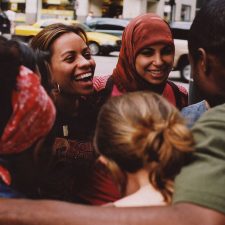A key aspect of management development that cannot be ignored is how to deal with conflict. We go to Alan Godwin, a psychologist, for guidance.
In management, people get close to people which means problems with people. If you handle those problems well, then there is closeness. If you do not handle those problems well, then there is not closeness. Closeness in management means trust, communication, and collaboration–a result of good conflict.
Good conflict has positive outcomes. It might feel awkward or bad in the process, but the results are good. Good conflict enables a person to say:
Management Development
- We argue but we work through our problems.
- We settle things and forget about them.
- We do well with each other despite our differences.
- I’m handling my conflict with that person in the healthiest way possible.
- I don’t let that person get to me like I used to.
How does good conflict help us?
In management development, what are the benefits of teaching conflict skills?
Good conflict solves problems. The issues may not be pleasant to discuss, but the pain of avoiding them is greater than the temporary discomfort of discussing and resolving them.
Good conflict feels positive. It may not feel so great in the middle of it, but it feels great to get through it and lay conflict problems to rest. Good conflict is a morale booster.
Good conflict strengthens hope. If a person seeks good conflict, it will be found and good feelings follow. The best way to feel hopeful about work relationships is to have good conflict.
Good conflict increases energy. Conflict is tiring, but by working through and solving a conflict problem, individuals gain more energy then is expended.
Good conflict enhances trust. Good conflict enables individuals to work together and have trust in work relationships.













